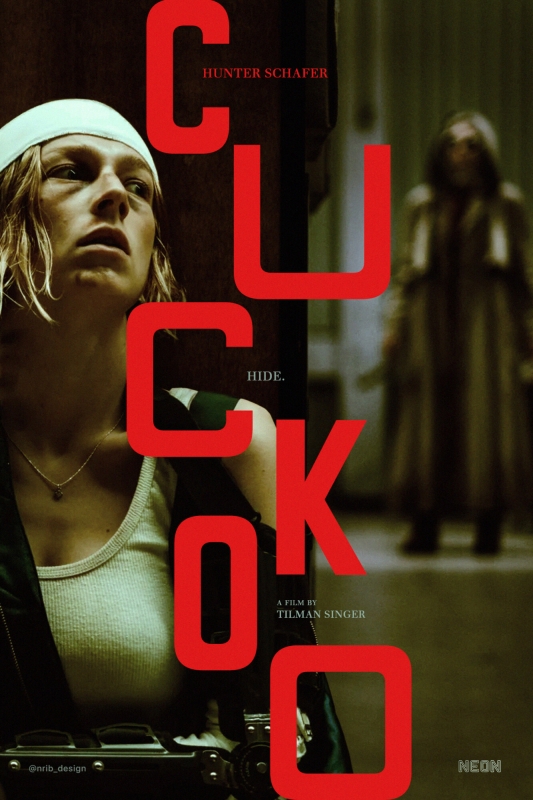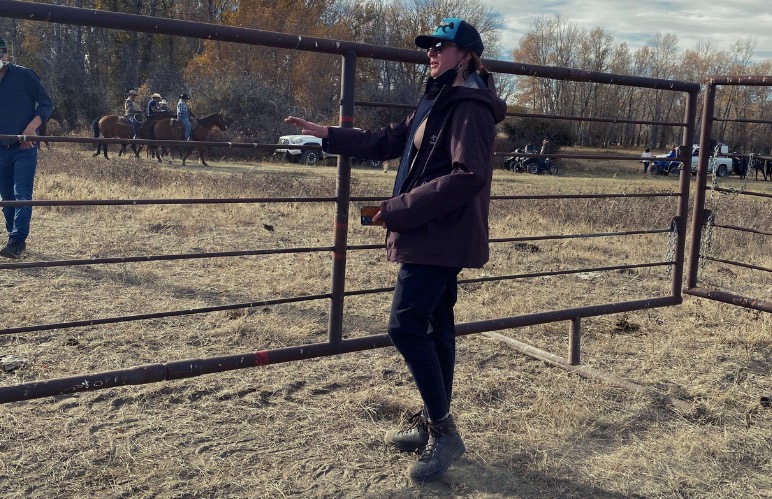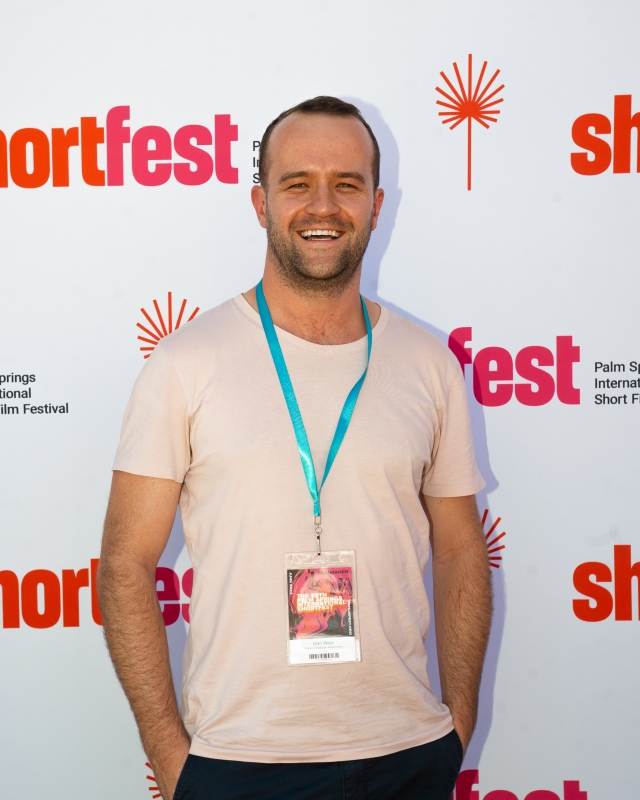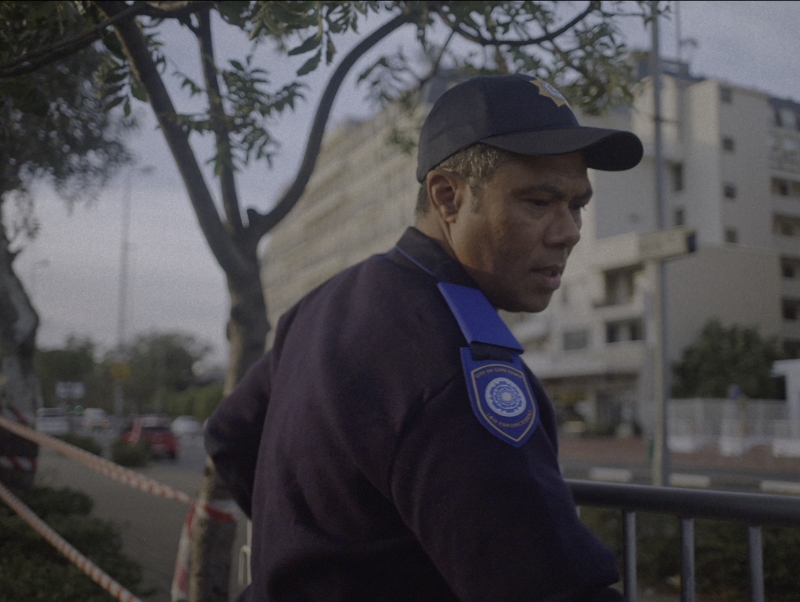|
|
||
|
Pro Tools
FILMFESTIVALS | 24/7 world wide coverageWelcome ! Enjoy the best of both worlds: Film & Festival News, exploring the best of the film festivals community. Launched in 1995, relentlessly connecting films to festivals, documenting and promoting festivals worldwide. Working on an upgrade soon. For collaboration, editorial contributions, or publicity, please send us an email here. User login |
EVEN THE RAIN, with Juan Carlos Aduviri
EVEN THE RAIN was directed by Iciar Bollaín and written by award winning screenwriter Paul Laverty. The film takes place in the village of Cochabamba, Bolivia, in 2000. The premise was to make an epic film about Christopher Columbus's arrival in the Americas. It is a fiction film in the style of a documentary about this film crew and its director, Sebastián (Gael García Bernal), and his producer (Luis Tosar) as they attempt to show Columbus, exploiter of the indigenous people of Bolivia. More than just a film about a film, EVEN THE RAIN depicts a world still thriving under the effects of post-Columbian exploitation over 500 years later. While the filming of the Columbus movie takes place, the director and producer audition hundreds of locals to play the parts of the main characters of the fiction film to be shot, and amidst all of this, the Bolivian Water War (which took place in 2000) breaks out with thousands of locals rebelling against American corporate privatization of the Bolivian water supply.
In an interview with Juan Carlos Aduviri (who plays Daniel/Hatuey) in EVEN THE RAIN (2010), this year’s Oscar entry for Spain. I sat with Juan Carlos at the closing party in Istanbul during the 30th IFF. Although we were already happy (from the party) and he spoke in Bolivian Spanish and me in English, we understood each other somehow :-).
ME: So, Juan Carlos. It’s a pleasure to be talking to you amidst the carousing at this closing party. Can you start by telling our readers about your film? It’s almost like a documentary and a fiction together right?
JC: Look, it’s easy. In the visual technics this film looks like it’s a fiction but it’s more than a fiction film; it’s a projection based on all the zones of the city of Cochabamba and about the people who fight for survival and who live in this moment in Bolivia. These people decided, ‘this isn’t a documentary, this is a fiction’ because I saw in the country there exactly how the life is in reality. We take gas, fuel and killed one of our brothers. This is what I saw in the film. This is the reality. I learned a lot being in this because the people saw me acting in this film and asked, ‘who really is the protagonist of this film?’, because in the year 2000, these people also came out to read to act in the film, and they said: ‘this is not a film of fiction. This is a documentary’ because they understood the past? So, I don’t catalogue. I don’t classify like a fiction. In my opinion this is a documentary.
ME: This is an interesting subject because there are more and more films coming out today which are mixing this genre of documentary and fiction, blurring the borders of what we have tried to classify as ‘truth’ versus ‘fiction’. So, you have some documentaries which are manipulated and some fiction films which are more truth than fiction. What can you say about this and EVEN THE RAIN mixing these genres?
JC: When I saw the theme of the film would be filmed as a fiction I didn’t see the difference. It was exactly how I saw things. The whole group working on the film was very patient, very careful and the subject was very well studied. For this, I didn’t see a fiction I saw this as reality and about the people of Cochabamba who are represented in this fight. In the film, the only thing that I saw as fiction is the character of Gabriel Garcia Bernal and Luis Tosar. They are fiction but the person that I interpret in the Bolivian history, many people look like ‘Daniels’ who have organized this village who have had to overcome oppressors. In the film the only person who is not a fiction is Daniel because Daniel represents the whole history of Bolivia. For this, when the people say, ‘this is a documentary film, not a fiction’, that’s exactly what I want them to see.
ME: So, how did you get this role?
JC: I am not from the city in the film, Cochabamba. I am from the city El Alto that is in the region of Cochabamba. We had a grand responsibility to represent the people of Cochabamba because the characters of these people are very specific. When we screened the film in Europe I was tranquil because I know that the people would see an emotional and historic film. But I was more worried about seeing the film in Bolivia among the people there because being an actor of this film and having worked on it, it worried me that the Bolivian people would feel they were not well represented in the film but actually in Bolivia, you have lines and lines of people who are lining up outside the cinema to see this film. So I understood that the people accepted in a grand mode that this work is about them and for them. They forget about the acting and the directing of the film. For this, I consider the director a grand human being to understand these people and the great feat to confront the problems of the region. This was grand. This was a great talent.
ME: Can you speak about how this film came into being and how the story was first realized?
JC: This was a grand obligation to the Bolivian people. First, Paul Laverty, the writer of the film, had dedicated more than two years of his life living in Bolivia, investigating, studying Bolivia. When the director came on board he came to do the same thing. He came to Bolivia to investigate, to see the people who live this fight. When he understood more about what Bolivia signifies, he thought about how to make this film. They wanted to make a film about the real Bolivia. Bolivia and cinema in Bolivia is very lacking in economic resources so it’s very difficult to have cinema there. But, Paul Laverty and Iciar Bollain had understood the Bolivian history. Paul Laverty who wrote the screenplay of the film THE WIND THAT SHAKES THE BARLEY (2006), an extraordinary film which won a prize at Cannes in 2006, he understands and dedicates himself to the social problems. When he wrote this script he did so in such an extraordinary manner, he is one who can feel pride for the human race. In all of the hypocrisy of human beings, there are a few who still have the hope and belief in the human race. Paul Laverty is one of those people who understood that it isn’t important what color you are, what social conditions you live in… If you are a human being we all speak in the same language. This is profound that he has the sensibility to write a story that is universal that people from all around the world can understand and be touched by.
ME: Beautifully put! Thank you! Is there anything else you would like to say about the film, about what it means to you?
JC: All of Latin America, especially Bolivia, has undergone 500 years of slavery, 500 years of bad treatment, 500 years of being treated like ignorant people, thieves, of liars and stupid. Actually, in Bolivia there is a lot of poverty. We are a colony with a lot of poverty but the colony is coming out. It’s a good time but not physically but mentally. Latin America, like in Bolivia, you have many countries in Latin America which are very poor. But the paradox is that the music in Latin America, the natural resources, the culture and the people are super rich. But the people are still very poor after 500 years of slavery and must also change here [and he pointed to his head]. The people now need to change mentally. I came from one of the lowest classes of Bolivia. I was the son of a minor and a countrywoman. To be here coming from such a low class to be here now in Istanbul. This is a dream I never would have imagined. Like I was in Madrid, in Paris, etc. So, I think of myself being a son of a minor and of a countrywoman and ask myself, ‘Who am I? Where do I come from? Where am I going?’ I can never forget this. I think about how in Bolivia and in Latin America we has a great potential to be one of the most richest lands of the world because of the riches that we have.
ME: This is incredible. Can you tell us more about where you came from and where you hope to go?
JC: I am Aymara of the Aymaras. They are great extraordinary as a race, in culture, in traditions like the Japanses, Arabs, Hindu, North Americans, etc. In the Aymaras we are like other cultures. We are the same as any other people in the world, without all of the poverty and all of the social problems, we are just like any other culture. The day that I can say, ‘I am as equal as, no better or worse than another person who is in South Africa, for example’. This idea is what I want for the new world, equality. I dream in my work every day to make a cinema in Bolivia (because I work in the free public film school for those who don’t have opportunities to work in other film schools) I dream for there to be a place for cinema in Bolivia, away from the politics. I have the security in my heart that cinema can make our dreams come true, that we are all equal, that we are all brothers. We all speak the same language and that we are all brothers. And cinema is so universal that we can achieve this dream.
ME: perfect! Wow! Juan Carlos, I hope also for this dream. Thank you so much for your passion and inspiration and please don’t stop acting… and directing.
JC: [laughs] Actually, I went to film school and studied to be a director and here I am representing a film where I play as an actor. Film is like this!
ME: Indeed, cinema is grand and very strange like this. Universal and very paradoxical. Thanks Juan Carlos. Now, let’s go join the party and celebrate your recent success.
OFFICIAL SITE HERE: http://www.tambienlalluvia.com/en/ Interview by Vanessa McMahon, April 24, 2011
Juan Carlos and Ahmed Abdallah photo by Vanessa McMahon, at IFF 24.04.2011 | Vanessa McMahon's blog Cat. : actor Ahmed Abdallah Americas And cinema Argentina Argentine people Bolivia Bolivia Cannes Cannes Che Cochabamba Cochabamba Department Contact Details Director director and producer Entertainment Entertainment Europe EVEN THE RAIN Even the Rain Films Foreign policy of Evo Morales Foreign relations of Bolivia Gabriel Garcia Bernal Gael García Bernal http://www.tambienlalluvia.com/en Icíar Bollaín Istanbul Juan Carlos Juan Carlos Aduviri Latin America Luis Tosar Madrid Official Oscar Paris Paul Laverty Person Career Person Travel Producer screenwriter Sebastián SITE HERE Social Issues Social Issues South Africa Universal Vanessa McMahon War War Who am with Juan Carlos Aduviri writer
|
LinksThe Bulletin Board > The Bulletin Board Blog Following News Interview with EFM (Berlin) Director
Interview with IFTA Chairman (AFM)
Interview with Cannes Marche du Film Director
Filmfestivals.com dailies live coverage from > Live from India
Useful links for the indies: > Big files transfer
+ SUBSCRIBE to the weekly Newsletter Deals+ Special offers and discounts from filmfestivals.com Selected fun offers
> Bonus Casino
User imagesAbout Vanessa McMahonThe EditorUser contributions |

























 McMahon Vanessa
McMahon Vanessa 


